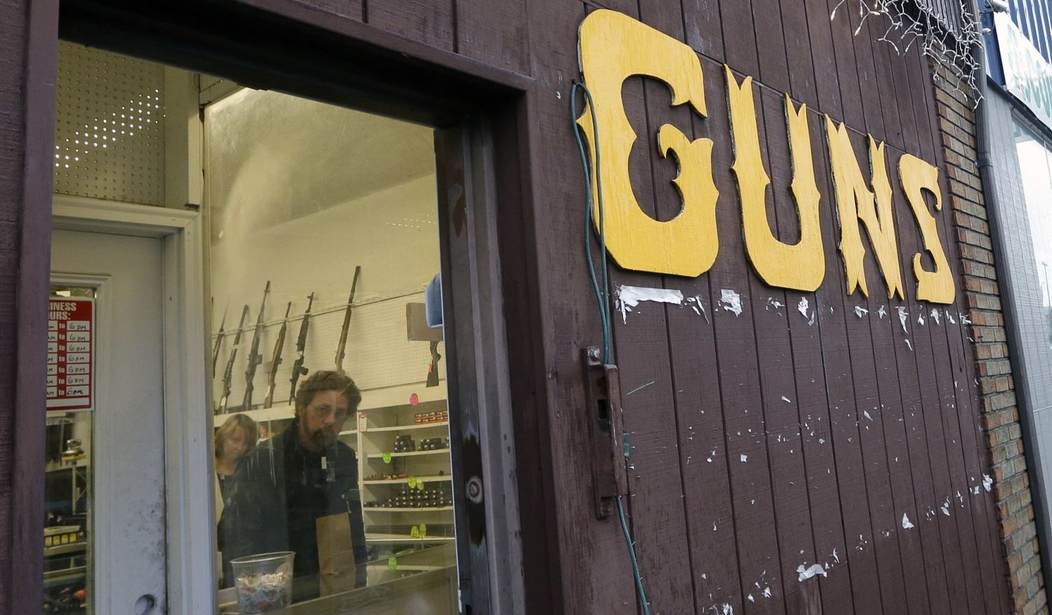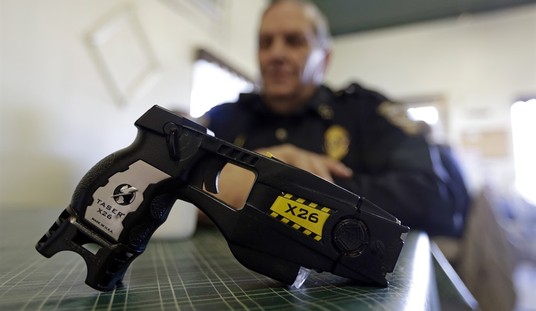South Dakota is generally pretty darn good when it comes to respecting our right to keep and bear arms. The first bill that Kristi Noem signed as governor was a Constitutional Carry bill, and Republicans are expected to approve legislation this year that would remove all state-mandated fees for those who continue to possess a concealed carry license.
The state is also home to a growing number of businesses within the firearms industry; businesses that find it difficult if not impossible to work with some of the biggest financial institutions in the country because of their policies that restrict access to services to the gun industry. One South Dakota lawmaker was hoping to level the playing field this session, or at least send a message to banks like Citigroup and Bank of America, but that won’t be happening after his fellow Republicans killed his bill in committee on Tuesday.
Senate Bill 182, stylized after a Texas measure, sought to require state officials bank only with financial institutions that left unfettered the firearms industry to do business.
Prime sponsor Sen. David Johnson, R-Rapid City, said many large banks have been — in his words — practicing “discrimination” against shooting ranges, gun manufacturers, and retailers because of perceived ties between the industry and gun violence in America.
“We’re here today because of choices that are made in corporate boardrooms that are hundreds and hundreds of miles away,” said Johnson.
Under the bill, no state agency, appointee, or state employee could — while doing state business — transmit money with a bank unless that bank specifies it lacks a “policy, rule, or guidance” to shy away from or outright deny business with a person legally engaged in the firearms industry.
That sounds good to me, but it met with resistance from a majority of the Republicans on the Senate Commerce and Energy Committee, which unceremoniously dumped the legislation on an 8-2 vote, despite testimony from South Dakota business owners who’ve been impacted by the banks’ policies.
Brandon Maddox, owner of Sioux Falls-based Silencer Central, told a story about a Capitol One employee in Omaha, Nebraska, who offered to “lie” on a form required to shift his personal credit cards to business cards in order to get around a company-wide stricture.
“Unfortunately, we cannot do business with a firearms’ business,” Maddox said the employee told him. Fortunately, Maddox said, the employee put down Silencer Central as a “sporting goods business.”
During opponent testimony, however, Mike Klumpp of Citibank told the committee no blanket restrictions on gun-related businesses exist.
“To be clear, Citi-issued credit cards can and are used everyday to purchase firearms,” said Klumpp.
Rather, he added, the company requires that any retailer they work with impose basic safety requirements, such as requiring background checks on customers and refraining from selling “high-capacity magazines.”
“Banks should be able to choose not to do business,” said Klumpp.
Klumpp’s testimony really clouded the issue, which isn’t (yet) about banks blocking customers from using their own money or even a credit card to purchase a firearm. And it’s not even about the legal ability of banks to deny services to those industries it considers unfavorable. No, this is about state governments choosing not to do business with those institutions who choose to impose corporate gun control policies on the firearms industry.
Unfortunately, that’s not how many Republicans on the committee saw it.
“This is not an easy bill,” said Sen. David Wheeler, R-Huron. “We have two values that many of us hold dear: Second Amendment rights and limited government principles.”
Senate Pro Tempore Lee Schoenbeck, R-Watertown, similarly lambasted big banks for “snowflake stuff,” but said he trusted local banks to finance gun companies without hesitation.
I’m sure most local financial institutions in South Dakota are happy to work with businesses in the firearms industry, but those local banks may not be able to offer the same services that bigger banks provide, and certainly not on the same scale.
As for the limited government argument, I understand where Wheeler is coming from, but ultimately it’s not that difficult a decision to make. The state has no problem promulgating rules and regulations for every industry operating within its borders, so is it really a violation of limited government principles to require banks that want to do business with the state government to not discriminate against the firearms industry (or frankly, any other legal industry out there)?
I say no, but I don’t get a vote in South Dakota, much less in the state legislature. There is a similar bill over on the House side of the state legislature, but given the vote on Tuesday, my guess is even if it passes out of the House it will still die on the vine in the Senate. It’s incredibly disappointing to see such a lopsided vote for a bill that would be of real benefit to the the firearms industry in the state, and I hope the bill’s sponsor and its supporters will keep working to sway legislators to their side, even if it takes more than one session to get this bill to the governor’s desk.









Join the conversation as a VIP Member